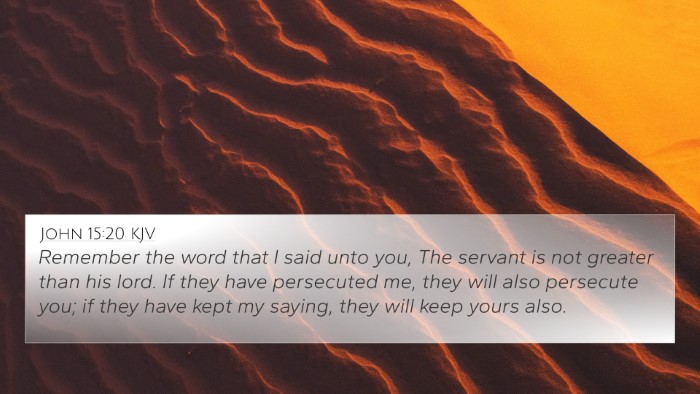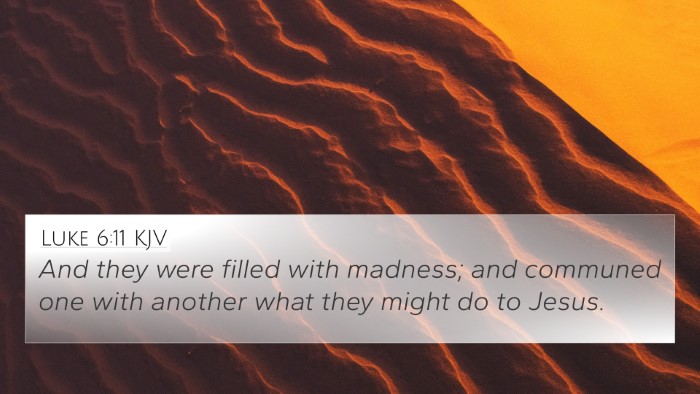Understanding John 5:16
John 5:16 reads: "And therefore did the Jews persecute Jesus, and sought to slay him, because he had done these things on the sabbath day." In this verse, we see a significant moment that illustrates the escalating tension between Jesus and the Jewish religious leaders. Below is a comprehensive analysis of the verse, including insights from public domain commentaries.
Contextual Analysis
In the context of John 5, Jesus had just performed a miraculous healing on the Sabbath, which violated the traditional Jewish law regarding work on this holy day. This action not only prompted admiration from the healed man but also fury from the Pharisees, who felt their authority was challenged.
Insights from Commentaries
-
Matthew Henry:
Henry emphasizes that the healing served as a demonstration of Jesus' divine authority and mission. He notes that the religious leaders' reaction was one of hostility, revealing their hardness of heart and inability to recognize the true nature of Christ's work.
-
Albert Barnes:
Barnes points out that the phrase "did the Jews persecute Jesus" reflects a collective response of the Jewish leaders, who were incensed not only by the violation of the Sabbath but also by the implications of Jesus' claim to divine sonship and authority over the Jewish law.
-
Adam Clarke:
Clarke provides a historical perspective, noting the significance of the Sabbath laws in Jewish culture. He explains that the leaders’ desire to slay Jesus was indicative of their fear of losing control and their misunderstanding of God’s intention behind the Sabbath.
Thematic Connections
John 5:16 opens discussions on themes of legalism, compassion, and the nature of true Sabbath observance. The reaction of the Pharisees highlights the conflict between Jesus' mission of mercy and the rigid adherence to law.
Bible Cross-References
- Exodus 20:8-11 - The commandment regarding the Sabbath.
- Matthew 12:10-14 - Jesus' teaching about healing on the Sabbath.
- Mark 2:27-28 - The statement that the Sabbath was made for man.
- Luke 13:10-17 - Jesus heals a woman on the Sabbath, provoking criticism.
- John 7:23 - Discussion of the healing on the Sabbath as a legal concern.
- John 9:16 - Further conflict regarding healing on the Sabbath.
- Hebrews 4:9-10 - A deeper theological understanding of Sabbath rest.
Comparative Bible Verse Analysis
The events surrounding John 5:16 resonate with numerous other scriptural accounts, showcasing an ongoing dialogue throughout the Scriptures regarding law and grace.
For instance, the connections between healing miracles in the Gospels shine a light on Jesus’ mission to challenge oppressive interpretations of the law. Similarly, the cross-references draw parallels to New Testament interpretations of Old Testament laws.
Tools for Bible Cross-Referencing
To fully grasp the nuances of verses like John 5:16, it’s crucial to utilize cross-referencing tools. These can assist in:
- Identifying connections between verses.
- Understanding the historical and cultural context of biblical laws.
- Exploring the thematic relationships between Old and New Testament teachings.
Conclusion
John 5:16 serves not only as an account of Jesus' actions but as a pivotal moment that laid the groundwork for future conflicts between Him and the Jewish leaders. By exploring the surrounding verses and employing cross-referencing techniques, readers can deepen their understanding of this narrative and its implications for the interpretation of the law, mercy, and the nature of Christ's ministry.











